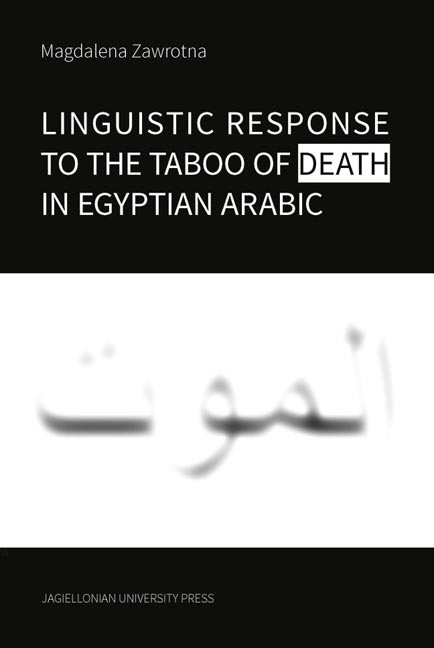Book contents
- Frontmatter
- Contents
- 1 Transcription system
- 2 Introduction
- 3 What is formulaicity?
- 4 Material
- 5 State of research
- 6 Structural notes
- 7 Qualitative analysis of death announcements, comments containing condolences and their responses
- 8 Recapitulation of the analysed material
- 9 Death and the agency of God
- 10 The taboo of death
- 11 Summary
- 12 Questions for further exploration
- Bibliography
- Miscellaneous Endmatter
6 - Structural notes
Published online by Cambridge University Press: 14 October 2023
- Frontmatter
- Contents
- 1 Transcription system
- 2 Introduction
- 3 What is formulaicity?
- 4 Material
- 5 State of research
- 6 Structural notes
- 7 Qualitative analysis of death announcements, comments containing condolences and their responses
- 8 Recapitulation of the analysed material
- 9 Death and the agency of God
- 10 The taboo of death
- 11 Summary
- 12 Questions for further exploration
- Bibliography
- Miscellaneous Endmatter
Summary
The current quantitative analysis encompasses 857 comments made in reaction to death announcements, the vast majority of which consist in condolences and blessings expressed with a set of conventional formulae. Single-formula expressions were very rare, most often at least a few of the elements presented below were represented. The scheme shown in the table below accounts for most of the typical formulae and the standard order in which they appear in the material studied. Additionally, the table shows the percentage of a given slot’s occurrence in the material studied.
The most typical example of a reaction to a death announcement has a multi-stage structure. Each of the stages is optional, yet the core appears in a majority of cases. Between the stages, the table shows empty slots called here discourse markers (DM). They can be filled with invocations directed at God (vocative forms), terms of address, terms of endearment or elements confirming blessings, e.g., amīn ‘amen’.
The core of condolences is usually two-cola, consisting of two twin supplications – requesting mercy and forgiveness for the deceased. Most frequently, they have the form of an optative expressed with the imperfective verb or, less frequently, imperative with vocative forms addressed directly to God. Perfect tense occurs as well, although it is rare. An explicitly expressed subject appears only with the first element of the group, while the second one is introduced with the wa/wi conjunction. Elements of the core might be separated by DM slots or appear one after another joined with the wa/wi conjunction.
(95) aḷḷāh yirḥamu wi yiġfirlu ‘May God have mercy on him and forgive him’.
(96) ya rabb irḥamha wi ġfirlaha ‘Oh, Lord, have mercy on her and forgive her’.
The stage which appears directly after the core is the supplement, i.e., an additional group of formulae, usually two-cola as well but with common diversions from the rule. The first part is a blessing for the deceased, in which the writer asks God to grant the deceased a place in heaven. The second part is a blessing for the mourner – the author requests relief, peace and patience (ṣabr) for the suffering bereaved one. It happens that only one of the formulae is used, while in certain cases more developed supplements occur as well. Optional DMs occur between the two elements of the supplement.
- Type
- Chapter
- Information
- Publisher: Jagiellonian University PressPrint publication year: 2021



